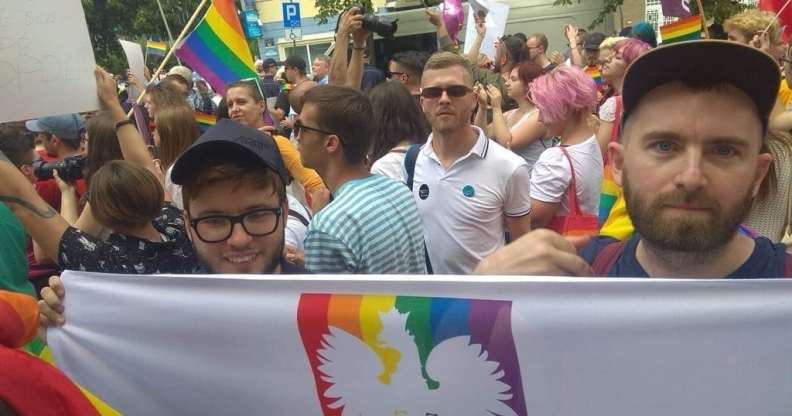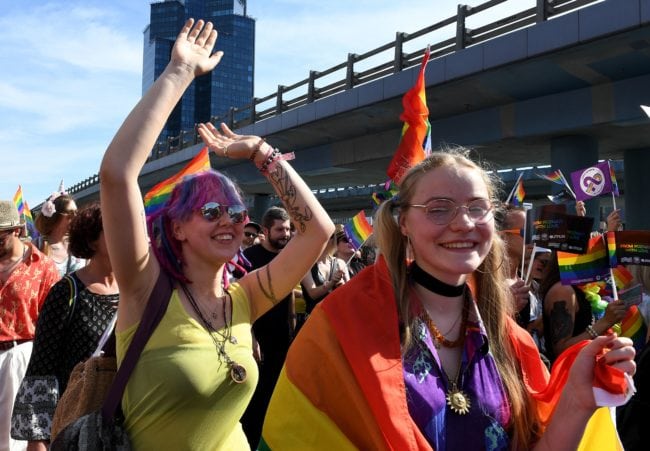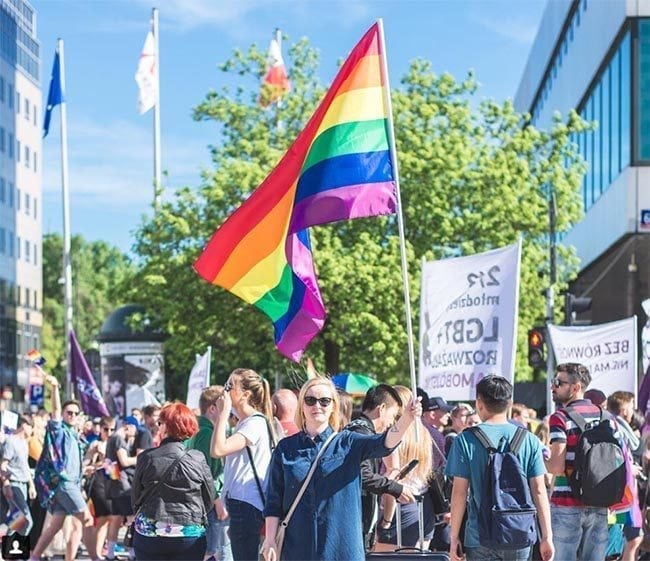Polish LGBT people could be prosecuted for ‘desecrating a national symbol’

Twitter: https://twitter.com/WkurzonyEmeryt/status/1015931362476470273
A Polish government minister has told the police to prosecute LGBT+ people, accusing them of “desecrating” a national symbol by featuring it on a Pride flag.
LGBT+ activists attended the first-ever Pride parade in Częstochowa, a city in southern Poland — home to the one of the country’s most important pilgrimage sites, the Jasna Góra Monastery — on Saturday.
Some of them were pictured displaying the White Eagle, the national coat of arms of Poland, imposed onto a rainbow flag, which led to a complaint questioning why police were not prosecuting the activists responsible.
The Minister for Internal Affairs Joachim Brudziński released a statement on Twitter on Sunday, thanking the police for their service during the march, which was contested by a group of anti-LGBT people.
Brudziński then accused the LGBT+ activists of provoking pilgrims, adding that he would notify police about the desecration of the symbol.
“The policemen reacted and, in this case, charges will be pressed for contempt and desecration of the national symbols. That’s the Polish police is so trusted among Polish people” he wrote.

Janek Skarzynski/AFP/Getty
The statement has not yet led to any prosecution, however, it suggests that those who attended the Pride parade and brought the flags may still be charged for desecrating the symbol — a crime that is punishable with a fine and up to a year in prison.
Members of the LGBT+ community who used the symbol at the parade would not be the first to be prosecuted for such offence.
The frontman of Polish metal band Behemoth was formally charged by Polish authorities earlier this year for desecrating the symbol in their tour artwork and merchandise.
In Poland, symbols are protected against profanity and insult, and any public use that could be viewed as damaging or insulting can be considered a criminal offence.
Figures suggest that Polish society is more tolerant than ever towards LGBT+ people. Opinion polls show a majority of Poles agree with the decision of the European Court of Justice on the recognition of same-sex marriage last month.
Rémy Bonny, a political scientist specialising in LGBT+ politics in post-communist countries, said: “One of the biggest opposition leaders in Poland is openly gay and is especially popular amongst young people. A vibrant gay scene emerged in the bigger Polish cities as well in the last decade.”

A Pride march in Poland in 2017
There was some controversy last month in the country when the Supreme Court ruled that no person has the right to deny service to the LGBT+ community. The case was taken by Poland’s Campaign Against Homophobia after a local print shop refused service to an LGBT+ organisation.
The police forwarded the case to the District Court, who found the employee guilty and fined him 200 PLN (€50).
In June, an estimated 45,000 people marched in Warsaw in an annual “equality parade” to protest discrimination against LGBT+ people, women, ethnic minorities and people with disabilities.
Same-sex marriage is still illegal in Poland, despite shifting public support, and the constitution limits marriage to opposite-sex couples.

